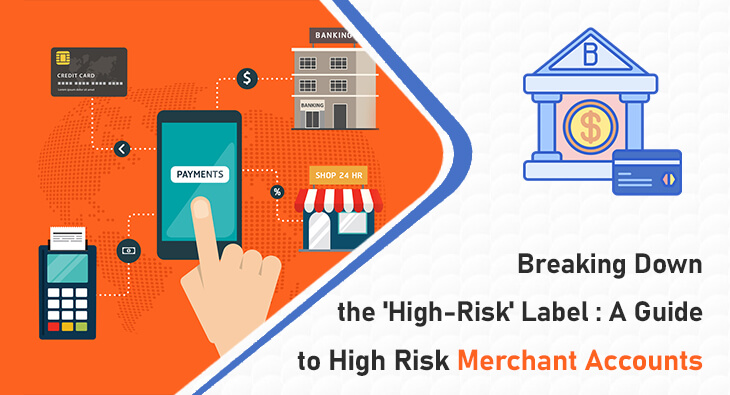Operating a business comes with a slew of challenges, and for some, one of those challenges is being categorized as a ‘high-risk’ merchant. This label may feel like a burden, but with a thorough understanding and strategic approach, you can navigate the high-risk merchant account landscape. This guide will break down the high-risk label and provide useful insights on how to handle it.
Understanding the “High-Risk” Merchant Account Label
Let’s dissect the term ‘high-risk’ merchant account. It’s a payment processing account for businesses that banks perceive as riskier due to certain elements. This could be a high occurrence of chargebacks, an increased likelihood of financial instability, or the industry your business belongs to. If you’re running an e-commerce store, a travel agency, a telemarketing company, or an adult entertainment business, for example, you might find yourself in this category. But, bear in mind, this tag isn’t all doom and gloom. It simply necessitates a more careful management of your business affairs.
Some Related Blogs
- Unlocking the Potential of Credit Card Processing for Forex Brokers
- How to Choose the Perfect Payment Gateway for Your Travel Business
- Take Charge of Your Business with High-Risk MCC Codes – Here’s How!
- How a Subscription Merchant Account Can Increase Your Customer Retention
The Implications of Being Labeled as High-Risk
When your business earns the ‘high-risk’ tag, it’s not exactly a walk in the park. The path may involve steeper transaction fees, obligatory rolling reserves, and more extended contract periods with payment processors. Plus, don’t be surprised if some banks give you the cold shoulder, leery of the risk your industry presents. But fear not, you’re not alone. Countless prosperous enterprises operate under this label. Armed with the right strategies, you too can turn these potential hurdles into manageable challenges.
Proactively Preventing Fraud and Chargebacks
Navigating the high-risk merchant landscape involves proactively tackling fraud and chargebacks. Take advantage of fraud detection tools to spot questionable activities early on. Pair this with top-tier customer service and transparent communication to mitigate misunderstandings leading to chargebacks. Also, never underestimate the power of thorough record-keeping—it could provide the needed ammunition to challenge unjust chargebacks. Remember, prevention is better than cure, and in the high-risk realm, it’s an absolute must.
Building a Solid Business History
A robust business history can be your shield against the ‘high-risk’ label. It’s about showing financial institutions that despite the odds, your business stands strong. How? Keep your chargeback ratio low—it’s a clear indicator of a smoothly running operation. Show them the money—consistent income is persuasive evidence of your business stability.
![]()
Email us anytime!
Email customer service 24/7
![]()
Call us anytime!
Reach customer care 24/7 at +1 (727) 330-3944
And let your business’s longevity speak for itself—the longer you’ve been operating, the less risky you seem. Your credit score shouldn’t be overlooked either; it’s the barometer of your financial acumen. Regularly monitor your account—early problem detection means early resolution, preventing any tarnish on your business history. Therefore, strengthening your business history is like fortifying your fortress, making your business a less appealing target for risk.
Seeking out High-Risk Friendly Merchant Services
Dodge the banks that shy away from high-risk business and instead focus on payment processors who welcome you with open arms. These specialty providers are familiar with the unique obstacles your business may face and have designed their services to address them. From robust fraud protection mechanisms to more lenient views on chargeback ratios, they’re prepared to handle the ups and downs of high-risk industries. So don’t fret, the right partners exist for your business. It’s just a matter of finding them.
Negotiating Your Merchant Account Terms
It’s essential to remember that when it comes to the terms of your merchant account, there is room for negotiation. Don’t hesitate to haggle for reduced transaction fees or more advantageous contract terms. Put your solid business history and minimal chargeback ratio to work for you in getting a better deal. Consulting with a legal expert or financial advisor is a smart move, as they can ensure the terms you’re offered are fair and beneficial. After all, the aim is to make the ‘high-risk’ label work for you, not against you. Your merchant account terms should reflect this strategy.


